Scaling is a hot buzzword.
But is it right for every mission?
We hear a lot about scale in the social sector. Funders love it. Strategy decks aim for it. It’s often seen as the gold standard of success. 📈
❓ But is bigger always better? Is it ever strategic NOT to scale?
What if more meaningful impact sometimes lies in going deeper, not wider? Perhaps hyperlocal? In building trust, transforming lives in lasting ways, and embedding impact in a specific place or community?
⚖️ How do we think about the pressure to scale with the value of depth?
🔹 Does every mission need to reach 1 million people to matter? Or can scaling take different forms than a single nonprofit's growth - perhaps sharing an idea, a process, or an operational model?
🔹 What trade-offs have you seen when organizations chase scale?
🔹 And when has scale worked—and why?
I asked my LinkedIn community about this, some reactions:
Nick Takamine shared insights from a related concept of "rhizomatic seeding.”
Matthew Kessler-Vaughn shared “Scale doesn’t always have to mean size. It can mean depth, alignment, or durability. I’ve worked with orgs that scaled by refining how they deliver services rather than expanding who they serve. One focused on strengthening internal systems so frontline teams had what they needed to show up fully. Their reach didn’t grow, but their impact deepened within the community.”
Brooke Richie-Babbage shared a fascinating podcast on “how to talk about growth beyond the numbers.”
What about you? What are your thoughts about the tensions embedded in scaling? I'm curious how you think about it and look forward to your comments. 👇
Take a short survey: what do nonprofits need to spark innovation?
What’s getting in the way of social impact innovation in your work? What support would make the biggest difference? I’m surveying nonprofit leaders and changemakers to better understand the real challenges organizations are facing today—especially when it comes to innovation, strategy, and impact.
👉 Take the 3-minute survey here.
What I’ve been reading
💭 Are you a new nonprofit CEO—or mentoring one?
According to the Harvard Business Review, one-third to one-half of new CEOs fail in their first eighteen months on the job. That’s a sobering statistic—but it doesn’t have to be your story.
The Ultimate Guide for New Nonprofit CEOs by my friend Brian Quail is a practical and insightful resource for navigating the early days of leadership. Brian writes from his decades of experience in our sector, and I admire his spirit of generosity, pragmatism, and real world wisdom. Be sure to follow Brian if you don't already, and check out his book here.
Innovation conversations in the social impact community
Loved speaking with the CatalystNow Systems Working Group—a global community of social impact changemakers—about ideas from my book Innovation for Social Change. ❤️ 💪 This was such a warm, curious, and generous community of systems thinkers and doers. If you aren’t already a member of this global movement of social impact pros, run, don’t walk! And it’s free!
🛠️ If you are looking for a small group setting to build community, Lori Stanley and I host "Casual Conversations with Lori and Leah." It's free. You set the agenda. Here is what our thoughtful June participants put on the agenda:
🔷Nuances of AI adoption in a small nonprofit workplace
🔷AI pros, cons, cultural blind spots, and risks
🔷How to think about one's niche within the nonprofit sector
☕ We keep it small and intimate and limit it to six participants.
📌 Upcoming dates: Thursday August 14 10-11 am EST; Wed Sept 10 12-1 pm EST, and we’ll be adding fall/winterdates soon. Register here.
🎙️ I recently had the pleasure of joining Pooya Pourak on The Nonprofit Lab podcast—an energizing conversation about innovation, collaboration, and reimagining what’s possible in the social sector 💡🌍
We also talked about what innovation looks like when you don’t have big budgets—but you do have creativity, courage, and a clear purpose.
🎧 Tune in here if you're rethinking how your organization shows up in the world—and how we can build a more just, imaginative future together.
🎙️ Enjoyed being interviewed on the Untold Stories of Hope podcast, hosted by the inspiring community-builder Zion Enogieru and sponsored by the Destiny Connect Foundation 💫
We had a deeply personal, heartfelt, and hope-filled conversation 💛 — about encouragement, finding meaning in our work, and persevering through suffering, setbacks, and even despair 🌧️➡️🌈
We talked about how lives are changed one person at a time 🙋🏽♀️🙋🏾♂️, and the quiet, determined hope that fuels real social change 🌍
🎧 Tune in here if you need a reminder that what you do matters — more than you know 💥


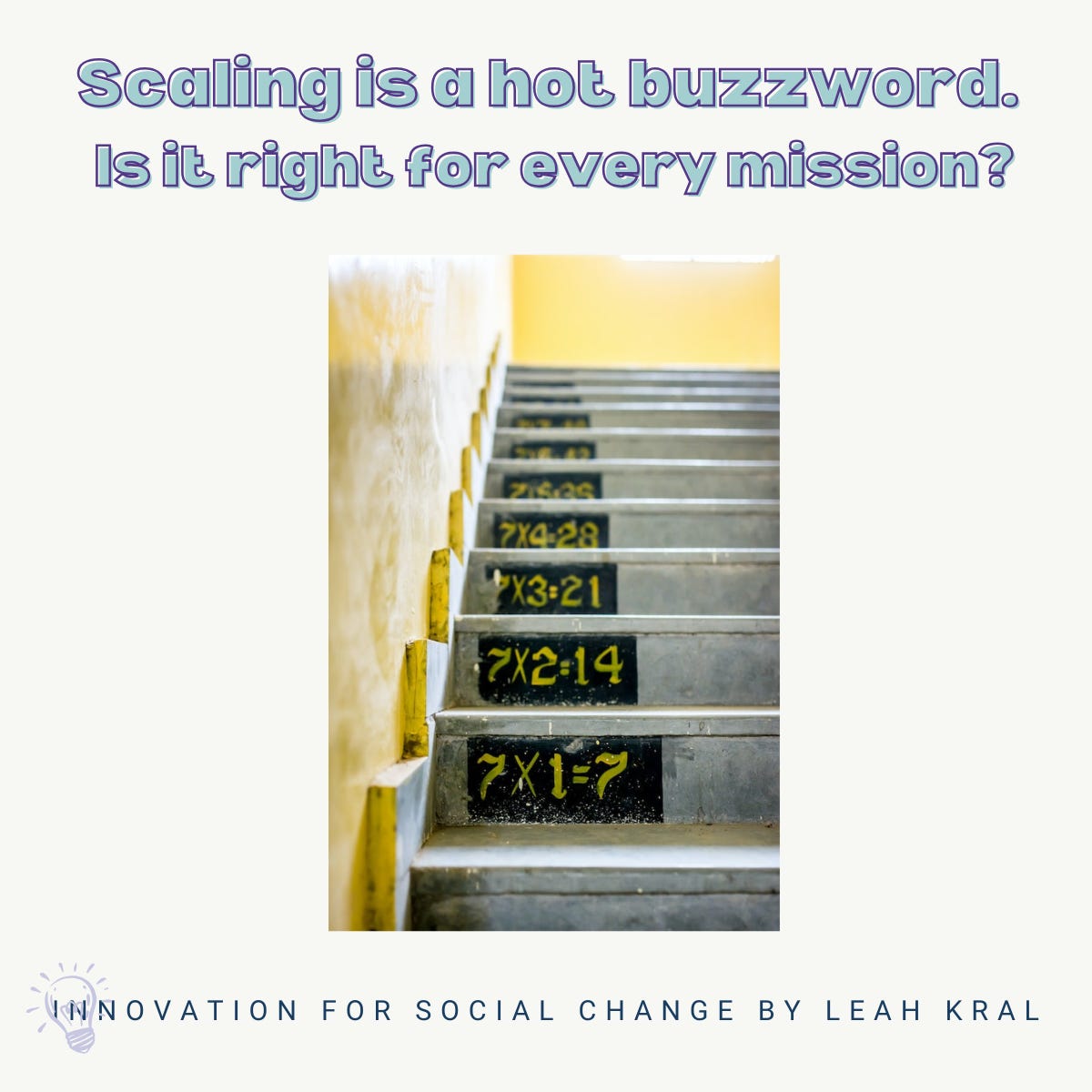
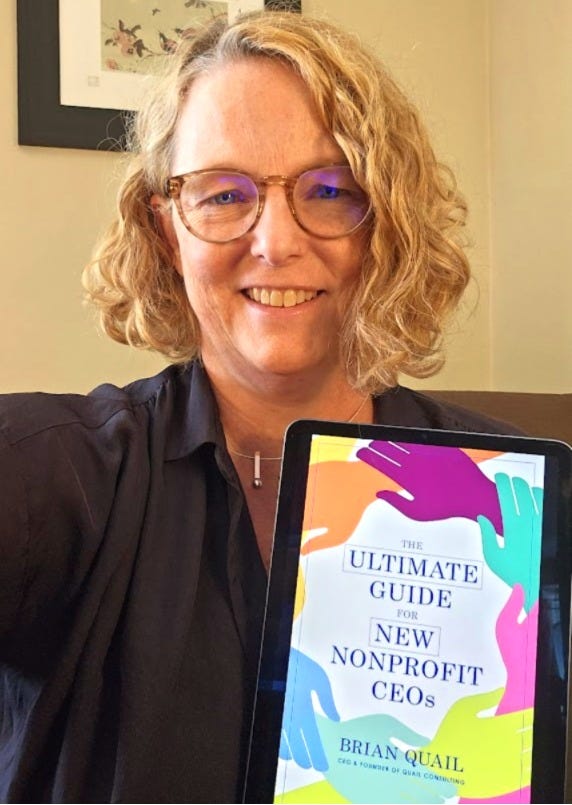
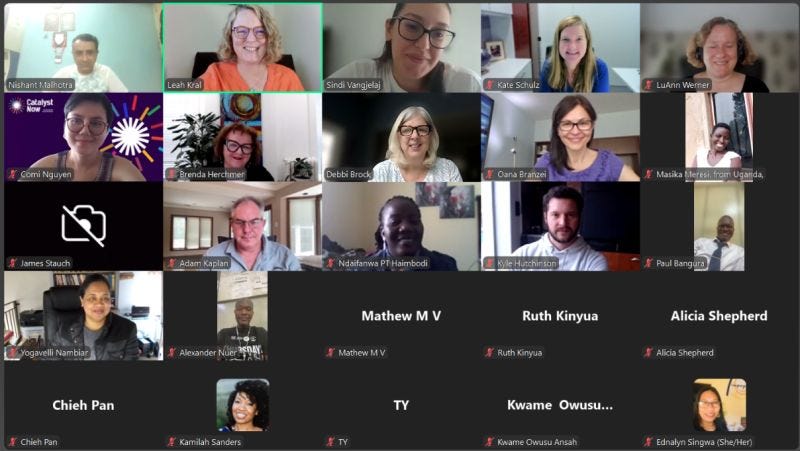
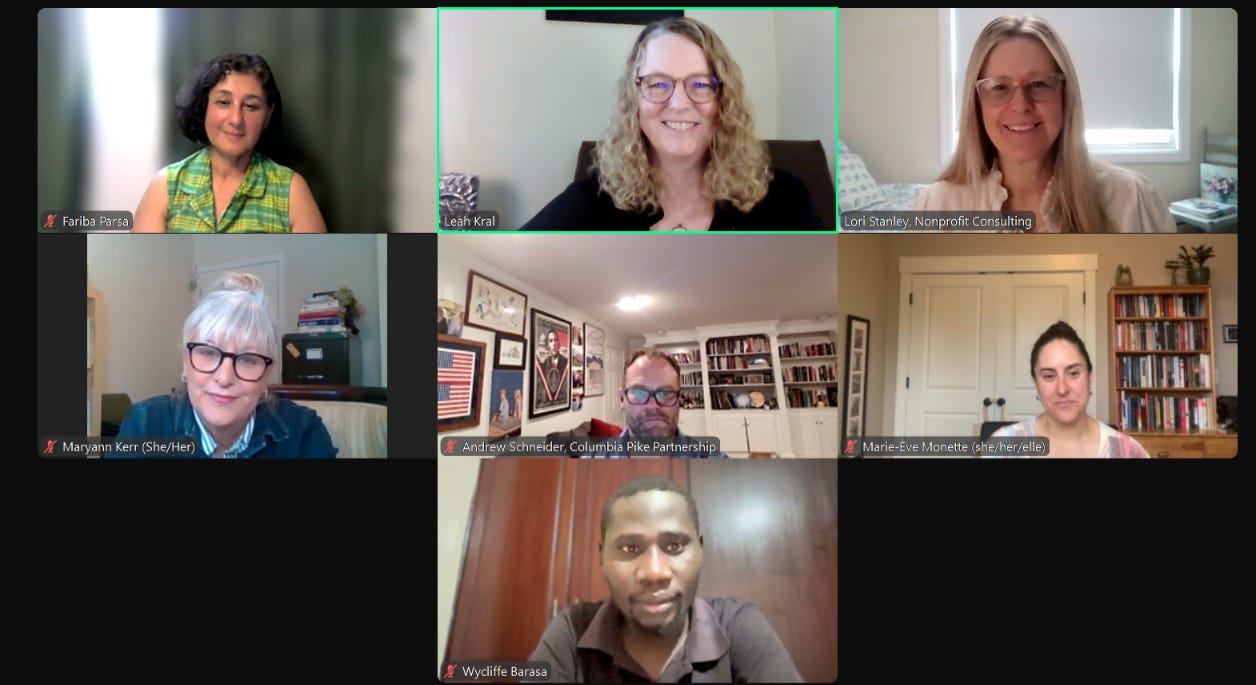

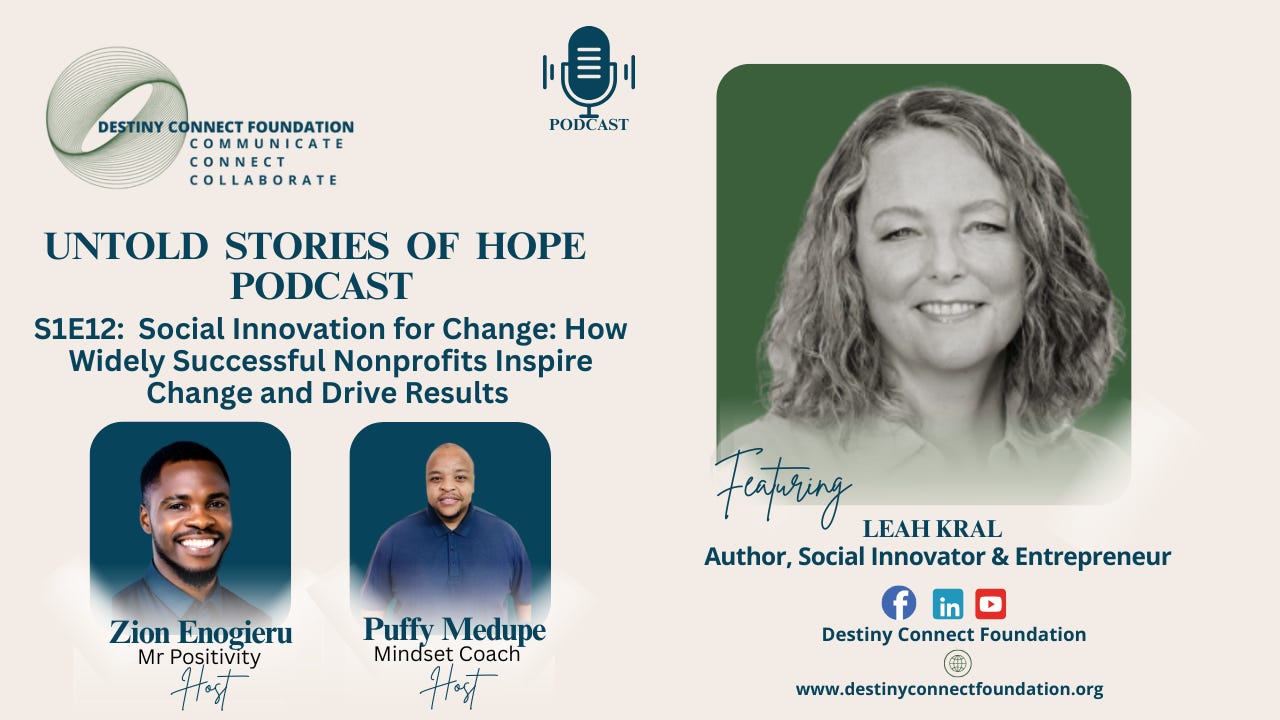
This is such a timely and important conversation. Thank you for naming the nuance here. Sometimes the most transformational work happens at a depth funders don’t always know how to measure, such as a youth program that doesn’t expand its footprint, but transforms its mentoring model so that every young person gets a sustained, meaningful connection. Perhaps a food access nonprofit that doesn’t open new sites, but instead co-designs its operations with the community it serves, creating real trust and dignity.
It's absolutely strategic not to scale, especially if you're an organization or leader that's been told by anyone other than you what "scaling" actually means.
If I want to increase impact because demand is rising, or the level of challenges is increasing, or because there's a real window of opportunity to solve/eradicate a root cause of the things my social enterprise was initially created to combat, I've got a case for scaling.
If there's simply an opportunity to expand or replicate what I'm doing effectively and efficiently, that in and of itself is not a case for scaling.
When a funder or investor encourages or insists upon it and connects their vision of scaling to some metric regarding size, growth, etc. I get it but I don't agree with it "just because"
When I'm witnessing recognition of scaling as something genuinely desired from the enterprise's actual impact community— beneficiaries as much as team, leaders, etc.— I'm more likely to believe it.
Scaling as a means to maximize my impact? I'm on board with. Scaling as a goal? I'm not. That sense of integrity, quality, purpose must not only be maintained but it needs to bring real actual genuine benefit and value to what I've already got. Not dangle some potential promise in front of me. This misbegotten notion that scale is a thing to aim towards— as opposed to the actual change or progress you seek-- is maddening.